The project was implemented in Naran, a town in the Kaghan valley of the Khyber Pakhtoonkhwa Province of Pakistan. Kaghan is a touristic area with about 100 hotels and the majority of the population is dependent on the hotel industry, through either direct or indirect employment. Despite being connected to the grid, the valley's electricity provision is extremely irregular, with long outages and an unpredictable supply.
During the tourist season (April to September), hotels use petrol and diesel-powered generators for their lighting and other daily needs. Nearby private households, which in many cases supply food to the hotels, face similar energy shortages. Due in part to this difficulty, the industry has observed a decline in the number of tourists visiting the region over the last few years.
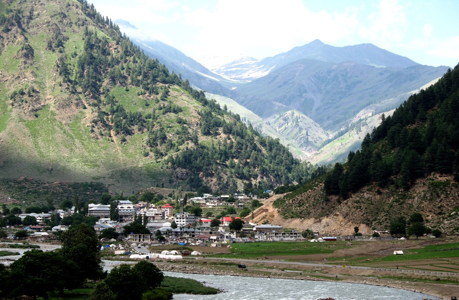
In this mountainous region with abundant water streams, hydroelectric energy offers particular promise. The project, therefore, aimed to design and install a micro-hydro power unit with a capacity of 40KW at a perennial stream and to establish an energy enterprise that would supply electricity to two hotels and six neighbouring houses.
After the completion of the project, the number of connected users increased to three hotels and fifteen houses, and the unit reached its full capacity of 65KW. A revolving fund was set up to sustain the company’s activities. This was seen as a potential first step for establishing other similar small (SME) energy companies in the region.
Technology, Operations & Maintenance
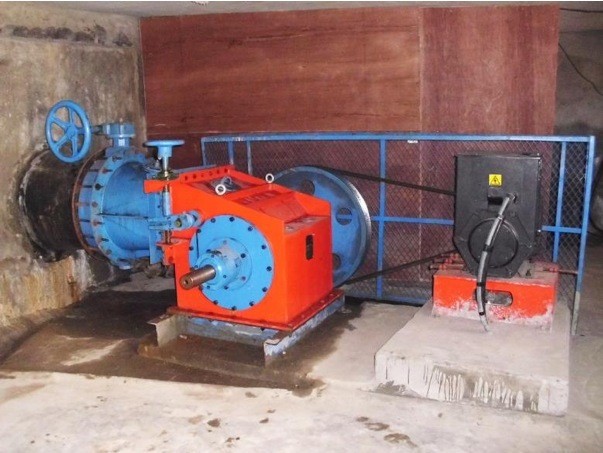
Following a feasibility study and identification of the most suitable site, the micro-hydro unit was commissioned - together with the distribution mini-grid and user connections - and was run on a test basis. At the end of the project the system was handed over to the SME and it has since reached its maximum supply capacity, generating sufficient power to fully meet the demand during the tourist season and allowing for continued use during the low season.
The connections to the existing local distribution grid are still in place, although the mini-grid is not connected to the national grid. The system has remained reliable during the post-project evaluation phase, running continuously except for two-hour rest periods each day and, to date, has not required any repairs. The system is supervised daily by trained technicians.
Delivery Model & Financial Management
A pre-feasibility study estimated that the cost of diesel to the valley’s hotels amounted to just under €200,000 per season, making micro-hydro technology economically attractive.
The project supported the creation of a private energy company, which now controls the micro-hydro unit, and provided training for the company’s management and local technicians to run the operation and maintenance on a long-term basis. The SME is responsible for tariff setting, which is done in consultation with the power users. During the first year, users paid a fixed monthly amount. As of the second year, the SME had collected enough funds to install digital meters in order to charge on a consumption basis. These tariffs are currently around half of the national grid price.
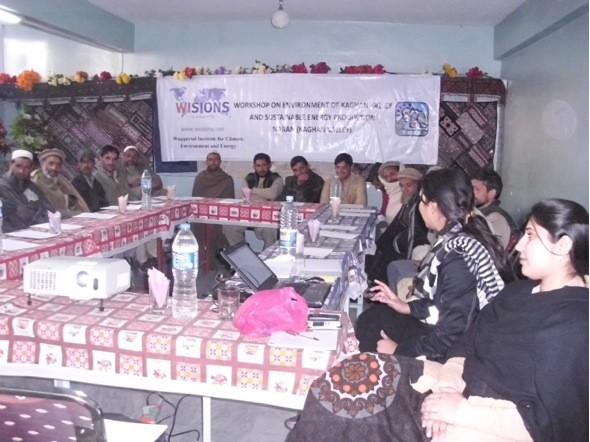
Furthermore, the project set up a revolving fund which has covered all maintenance expenses to date, including additional protection which was constructed after the project period to reduce the risk of damage to the unit from landslides. The fund is governed by six representatives from the hotels and one member from T-PAK. The hotels contribute a fixed amount each month to the fund, whereas the SME contributes a percentage of its profit and household users pay a percentage of their monthly bill.
Three workshops and a number of community meetings were held with the aim of raising awareness about the project, the technology and energy conservation among the general public and local stakeholders. Information materials were distributed to the general public and interested parties, including tourists.
Environmental Issues
The project has eliminated fossil fuel consumption for electricity use in three hotels and fifteen houses in Naran, with no negative impacts on the environment as a result. The system was built on urban land and has not interfered with the water supply. Moreover, the replacement of diesel generators with a pollution-free alternative has the potential to improve the health of the local population.
Social Issues
The company - which was set up as part of this project - is seen as a starting point for the expansion of similar initiatives in the region. Over the last few years, community-managed micro and mini-hydro projects have been successfully adopted in Pakistan’s remote areas, as they provide an environmentally and economically sustainable option.
In particular, the tourism sector in Pakistan - which is confined to very few locations - is a particularly good testing ground for this model, given the importance to this sector of a reliable electricity supply and the potential for creating employment.
Results & Impact
The construction of the micro-hydro unit was achieved on time and on budget. It is currently operating well at 65 KW production capacity, generating sufficient power to fully meet the demand and has required no repairs to date. Having started with two hotels and six houses, the project was able to increase the number of end users within the mini-grid, adding one further hotel - also a member of the local tourist association T-PAK - and nine additional houses in the vicinity. The cost for the civil works for this extra connection was covered by the users.
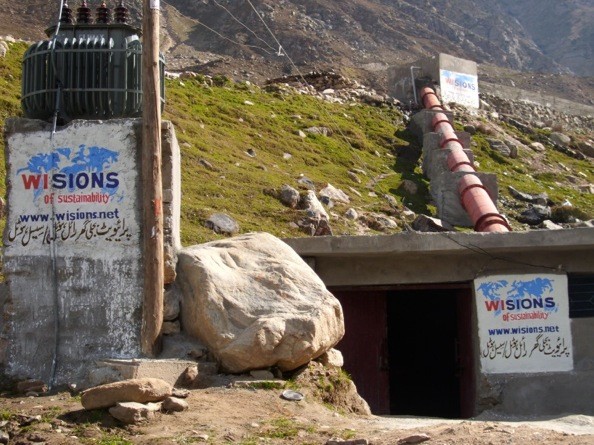
The creation of the company, the training of the company’s management and technicians, as well as the establishment of the revolving fund are other major outcomes from which lessons can be learnt. Overall, the project can be considered as a having made a successful contribution to providing a sustainable energy supply for an important economic sector.
Replicability
With many perennial mountain streams in the area, there is good potential for the replication of this project in Kaghan and other neighbouring valleys.
Pakistan is currently facing one of the highest energy demand-supply gaps in its history. While large cities have a relatively reliable power supply, rural areas face 14 to 18 hours of power outages per day. Mountainous areas are worst affected; during summer the power outages in these areas can last for 18 to 20 hours per day. In the face of this challenge, this project was carried out for demonstration purposes with a view to providing a first stepping stone for similar initiatives in the area.
The implementing partner is the local tourism association, which is composed mainly of hotel owners and constitutes a good channel for the dissemination of the project’s lessons. As a result of the project, they now maintain links with institutions involved in mini and micro-hydro technology.
Lessons Learned
The key lessons from this project arise from the creation of the energy company and the training of the company’s management and technicians. The local hotel industry and its association had limited resources to implement a micro-hydro unit and mini-grid and the financial support from WISIONS served to bridge that gap. During the process, the coordinators learnt about the importance of local ownership and balanced representation in the decision making bodies, and also had to deal with difficulties and delays when registering the energy company in Pakistan.
One of the main obstacles was the overall lack of knowledge about renewable energy sources in general, and specifically about hydro energy within the tourist sector. While the T-PAK team is now highly experienced, there is still insufficient knowledge in neighbouring areas.
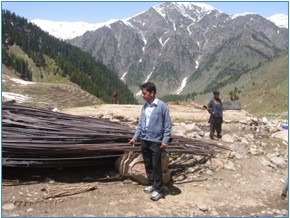
Projects with same technology
Establishment of Demand-Driven Sustainable Improved Watermill Cluster in the State of Uttarakhand, India
This project aims to improve the traditional water mills by replacing wooden equipment in order to make them more efficient and to demonstrate the importance of the technology in the mountainous region. Furthermore, the supply and demand gap of products (such as grains) processed by the water mills could be closed by efficient production and effective marketing.
Exchange: Knowledge and Advocacy for Productive End Use of Micro Hydro Projects
This exchange activity aims to contribute to the sustainability of micro hydro plants in Southern and Southeast Asia by increasing the load factors and financial bases through the implementation of proven best practices for productive end uses.
Projects in same country
Powering milk chilling units with biogas
To pilot innovative and sustainable solutions to power milk refrigeration and processing units using renewable energy sources
Micro Hydro Power Resource & Services Centre in Chitral, Pakistan
This project aims to improve the reliability and sustainability of micro hydro power plants in Chitral, Pakistan.